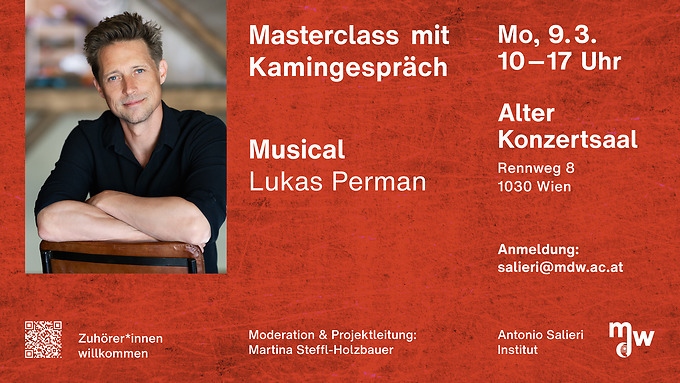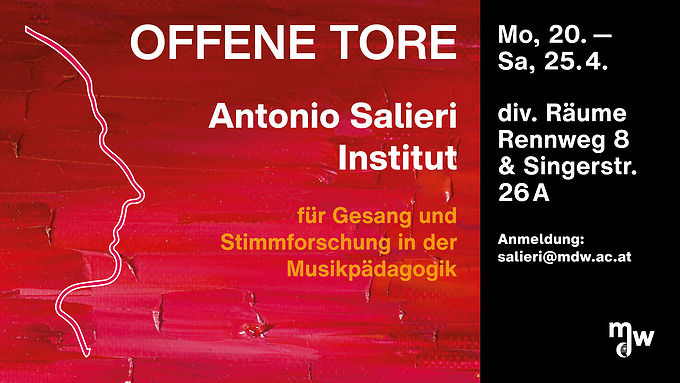Wir verwenden Cookies für das beste Erlebnis auf unserer Website. Mehr Informationen finden Sie in unserer Datenschutzerklärung.
Institutsleiterin:
Univ.-Prof.in Mag.a Judith Kopecky, PhD
E-Mail: kopecky@mdw.ac.at
Tel.: +43 1 71155/4700
1. Stellvertretende Institutsleiterin:
MMag.a Amira El-Hamalawi
E-Mail: el-hamalawi@mdw.ac.at
2. Stellvertretender Institutsleiter:
Univ.-Prof. Mag. Dr. Alexander Mayr
E-Mail: mayr-a@mdw.ac.at
Sekretariat:
Johanna Jünger, BA BA
Rennweg 8, 1030 Wien
Tel.: +43 1 71155/4701
E-Mail: salieri@mdw.ac.at
 |
 |


